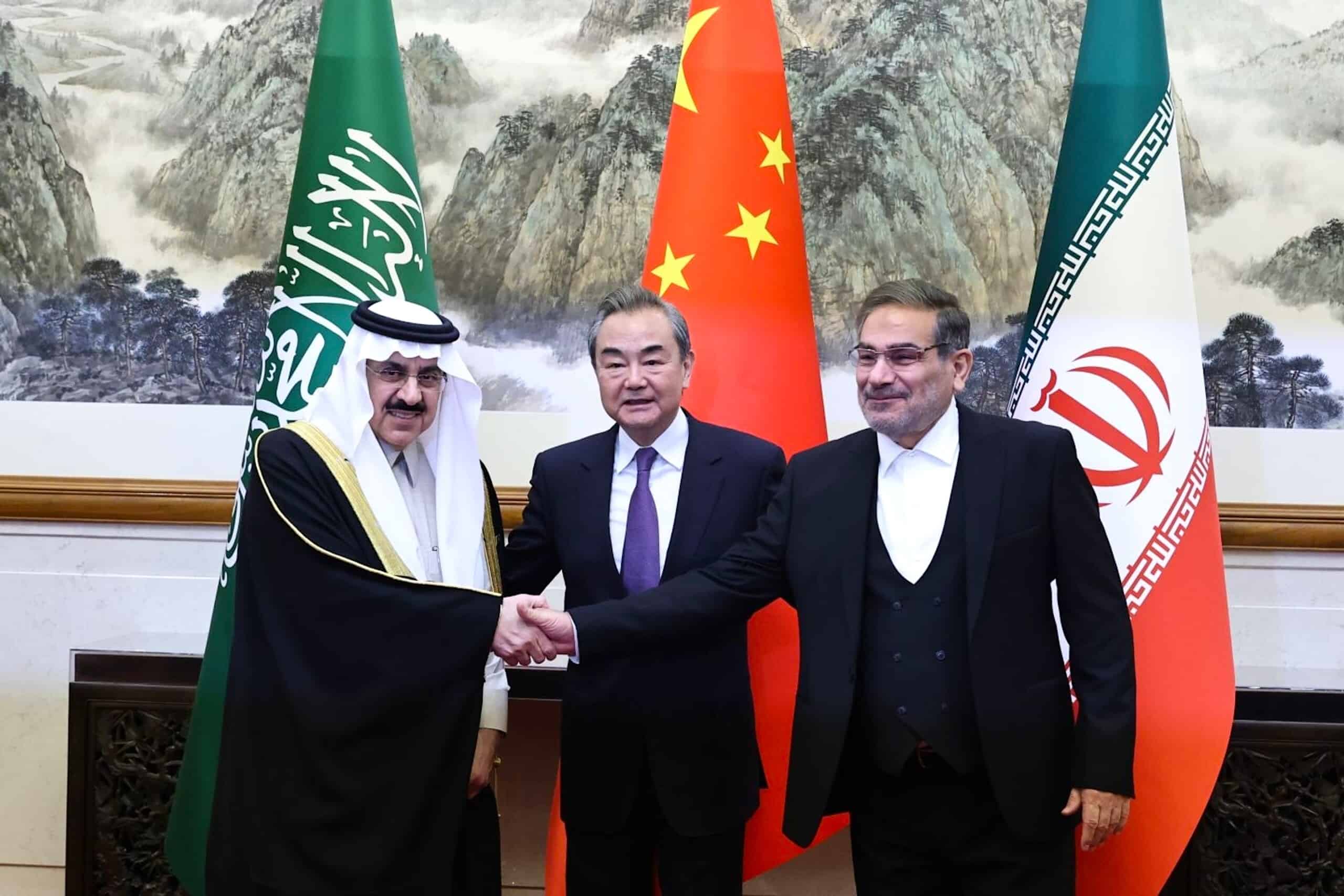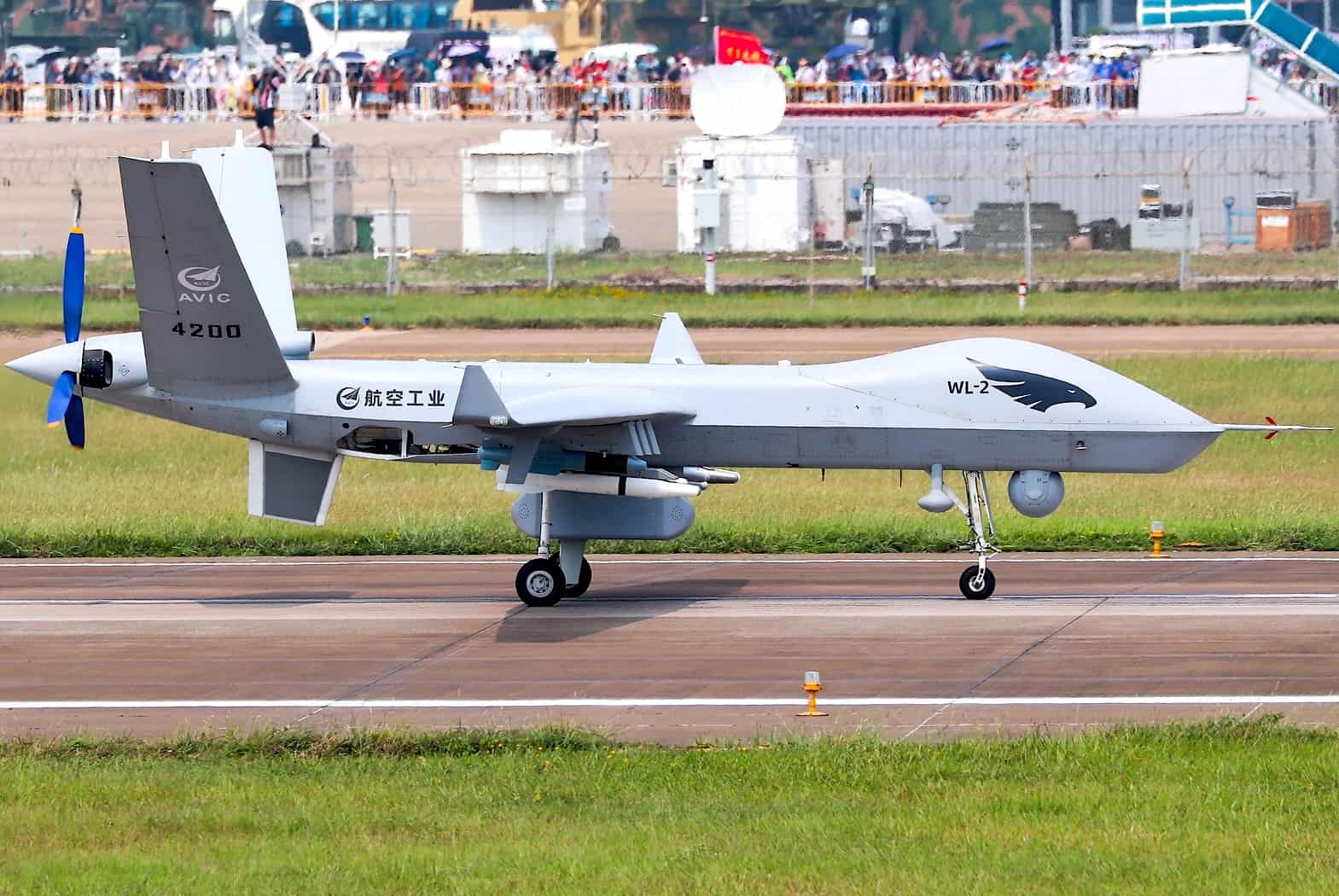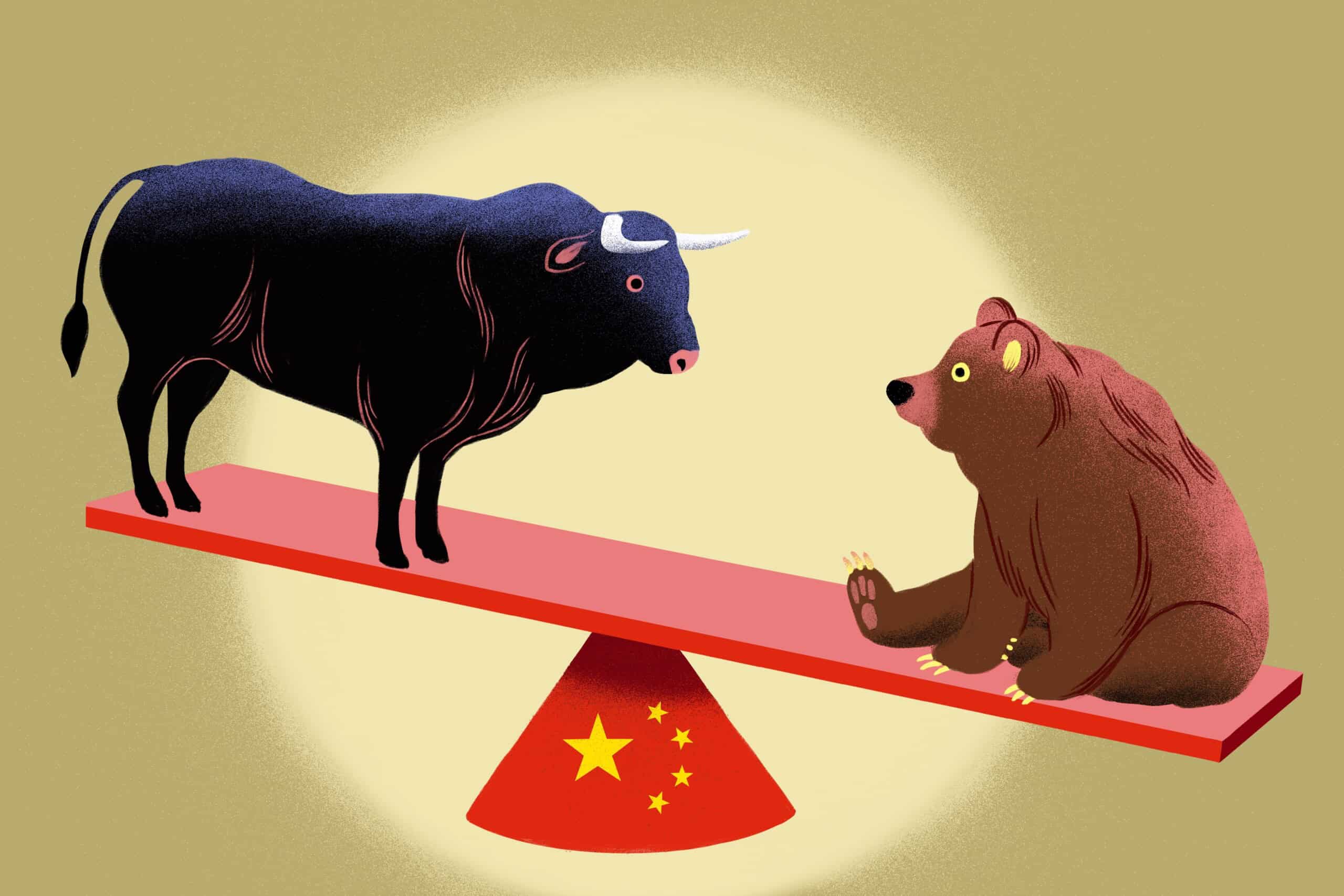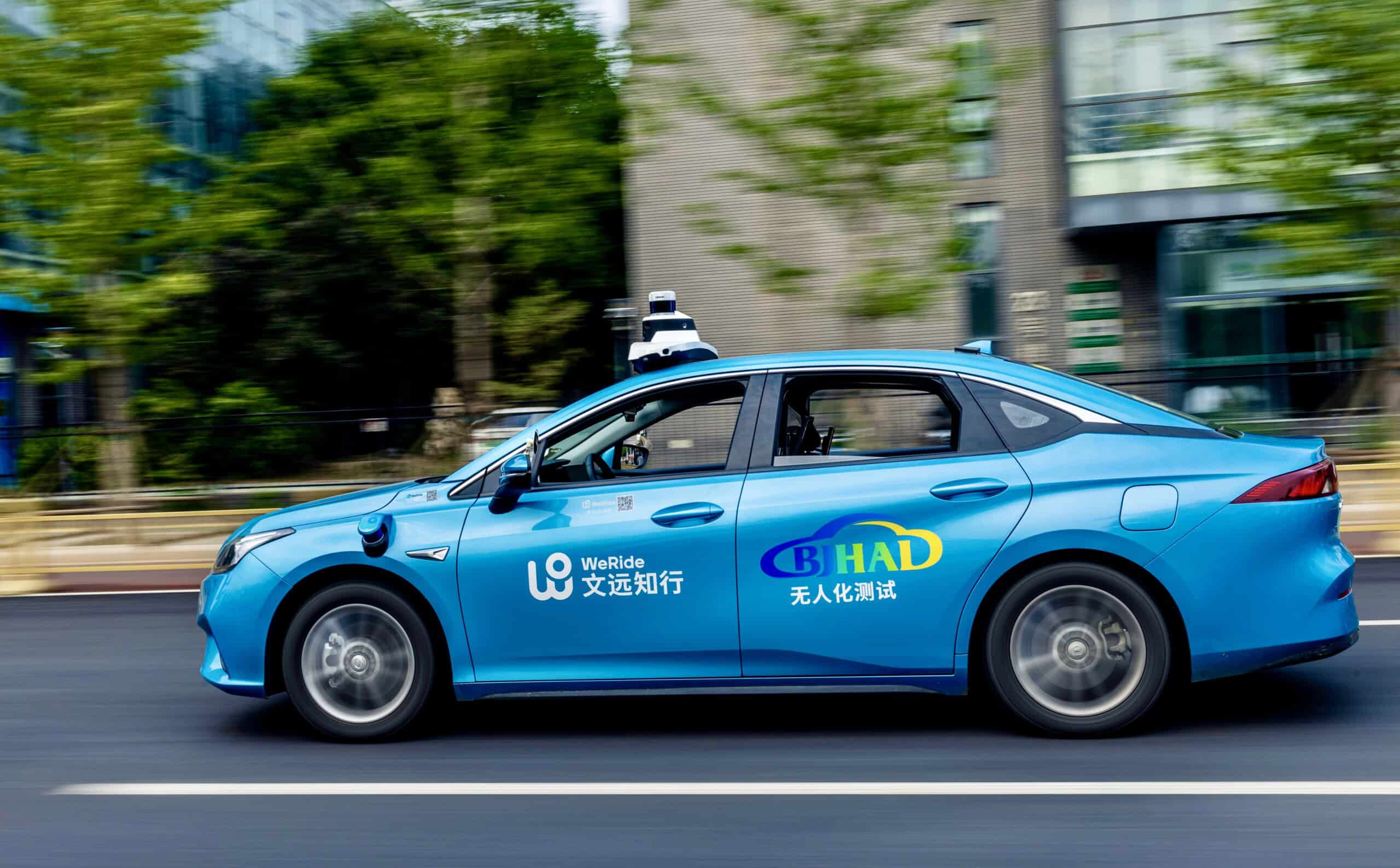
The fallout from Hamas’s shocking attack on Israel has dominated global news bulletins this week. To date, China’s public response has been limited. Senate majority leader Chuck Schumer, who was visiting China with a bipartisan group of senators last week, called on Beijing for a stronger statement against the Hamas action, with the Chinese foreign ministry later issuing a statement condemning “acts that harm civilians.”
China’s interests in the Middle East have tended to run counter to those of the U.S.— it is close to Iran and has long supported the Palestinian cause. Yet until recently its priorities have been economic, while it has tried to maintain amicable relations with all sides in the region.
All these countries have different vision projects… and China’s been one of the biggest partners in that regard.
Jonathan Fulton, nonresident senior fellow at the Atlantic Council
In the last year or so, China has taken more diplomatic initiative, including brokering a deal to restore relations between Saudi Arabia and Iran earlier this year. The resumption of violent hostilities in the region this week demonstrates the difficulties China will face as it looks to further elevate its profile in the Middle East.
This week, The Wire looks at how China’s relationship with the Middle East has progressed, and assesses how China’s soft approach to diplomacy is likely to fare during times of crisis.
JUST BUSINESS
Although China is a huge customer for the Middle East’s energy, mineral, and chemical markets, its relationships are not one-way. Chinese firms have found strong export markets in the region for an increasingly diversified range of products, including consumer electronics, machinery and pharmaceutical products.
China’s goods trade with the Middle East and North Africa reached $368.4 billion in 2022, up more than 29 percent from the previous year, according to the International Monetary Fund data.

A big draw for the region’s countries is China’s capital. The Middle East accounted for 23 percent of China’s Belt and Road engagements globally in 2022, according to the Green Finance and Development Center at Fudan University.
“China is a huge commercial actor in terms of contracting infrastructure and construction in the region,” says Jonathan Fulton, nonresident senior fellow at the Atlantic Council. “All these countries have different vision projects, like the Saudi Vision 2030, and China’s been one of the biggest partners in that regard.”
Saudi Vision 2030 is Riyadh’s signature effort to reduce the role of oil as the main driver of the country’s economy. Among the associated technology investments is a $5.6 billion agreement, announced in June this year, for Chinese electric vehicle company Human Horizons to establish an automotive joint venture with the Saudi Ministry of Investment.

Despite the Saudi effort to diversify, 95 percent of China’s imports from there still consist of petroleum oils, plastics, and organic chemicals, according to the Mercator Institute for China Studies. The country is China’s thirteenth largest source of imports globally, while the U.A.E. — China’s largest export market in the Middle East — ranks only twentieth globally, largely due to its role as a re-exporting hub.
China’s stature as an arms exporter to the region still dwarfs that of the United States, but China has proven a convenient alternative in cases where human rights concerns in the U.S. have inhibited sales to some countries. In early 2017, state news agency Xinhua said that an unnamed customer had placed a large order for the Wing Loong II, an armed drone built by the state-owned Aviation Corporation of China (AVIC). Saudi Arabia ordered 50 of these drones from China that year, according to the Stockholm International Peace Research Institute’s Arms Transfers Database.
“There are certain niche areas that China is able to take care of for Saudi Arabia,” says Giorgio Cafiero, chief executive of risk consultancy Gulf State Analytics. “For example, when the United States did not want to sell Saudi Arabia certain drones, that was when China came in and provided some of those drones.”

Trade between Israel and China has continued rising since the two countries announced what they called an “innovative comprehensive partnership” in 2017, focused on emerging technologies. In 2022, bilateral trade between Israel and China reached $21.08 billion, up by 16 percent from the year before, according to the Institute for National Security Studies at Tel Aviv University. However, some Israeli companies have remained wary of expanding technology ties with China.
“A lot of Israeli firms don’t want to be seen to have a lot of Chinese tech contracts on the books, because if they have to get investors or partners in Europe or the U.S., it’s going to make it a harder deal for them,” says Fulton from the Atlantic Council.
China in some ways benefits from the status quo in Israel-Palestine, because the United States is very isolated in terms of its unconditional support for Israel.
Giorgio Cafiero, chief executive of risk consultancy Gulf State Analytics
Israeli national security concerns also play a role in limiting technology exports to China when that technology has potential military applications. In 2022, ten Israelis were charged with arranging an unauthorized sale of cruise missiles to China, with Israel’s security services citing concerns that “such technology could reach countries hostile to Israel.”
“In part because of China’s relationship with Iran, the thinking among Israeli officials is that, from a national security standpoint, there are some serious risks with transferring such dual use technology to China,” says Cafiero from Gulf State Analytics.

MUDDY DIPLOMACY
China has begun to demonstrate some nascent diplomatic influence in the Middle East. Unlike the U.S. and many European countries, China has full diplomatic relations with the State of Palestine, and frequently reiterates its support for the two-state solution as a means to resolve the Israeli-Palestinian conflict.
Offering economic olive branches, however, appears unlikely to solve such an intractable conflict.
China’s “narrative of peace through development doesn’t really hold up that well in this region, especially in the Israel-Palestine case,” says Fulton from the Atlantic Council. “It’s not an issue of: if you come with economic solutions, you’re going to solve security problems.”
Others suggest China’s position on the conflict may aid its pursuit of a new multilateral order not led by the U.S.
“China in some ways benefits from the status quo in Israel-Palestine, because the United States is very isolated in terms of its unconditional support for Israel,” says Cafiero from Gulf State Analytics. “The positions that China has are much more in line with the positions embraced by the vast majority of countries in the international community. A continuation of the crisis in Gaza is an opportunity for China to take advantage of the U.S. appearing as an isolated power.”

Aaron Mc Nicholas is a journalist based in Washington DC. He was previously based in Hong Kong, where he worked at Bloomberg and at Storyful, a news agency dedicated to verifying newsworthy social media content. He earned a Master of Arts in Asian Studies at Georgetown University and a Bachelor of Arts in Journalism from Dublin City University in Ireland.




